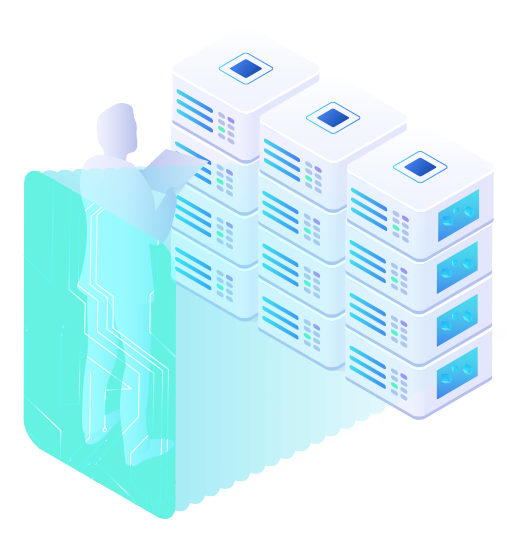Data Management

Data Management & Protection
Regardless of where data exist, we need to be properly managed. Good data management is extremely important and should be seriously considered throughout the life cycle of study and beyond; including archiving and timely destruction of data. Poor data management could undermine the integrity of the study and research to cover any interest that may arise and / or impact.
Data Archiving

Better backup and restore performance
Data archiving is a place for long-term retention and storage of important data. It is suitable for storing some data that must be retained due to operational or regulatory requirements but does not need to be accessed or modified frequently. Examples of such data are document files, e-mail messages, and possibly old database records. Once in the archived data management system, the information can be accessed.
The data archive system protects its integrity and provides a safe location for storing mission-critical information for use as needed. Trends in government regulations, laws, and company policies all tend to retain more data and retrieve it faster. Secure data archiving services can help companies keep up with these trends to reduce costs.
Benefits of data management:
- Save money.
- Enhanced productivity.
- Prevention of data loss.
- Higher growth.
- More refined management of locations.
- Increased capacity.
- Increased security.
Our IT Partners
Data Security

Advanced data security meets growing security threats
The explosive growth of data, virtualization, and multi-tenancy, coupled with increasingly complex data security vulnerabilities and stricter government regulations, poses new challenges for enterprise data security. Most importantly, the amount of “sensitive” data that needs to be protected has been steadily increasing. They include government ID numbers, medical records, credit card, and payment data, intellectual property rights, and any other data that may cause harm by unauthorized people or organizations. Although virtualization, cloud computing, and storage-as-a-service help manage these unexpected data, they can also make tracking and protecting all levels of the stacking challenge.
Develop a data security strategy that can avoid threats ATech can help you provide high-performance, comprehensive, non-disruptive data security solutions from design to implementation and management.
Benefits of data security:
- Improve productivity of IT security personnel.
- Reduce unplanned downtime.
- Protect your business.
- Allows employees to work safely.
- Protects productivity.

Our IT Partners
Data Protection

Change your data protection program
With the emergence of new cloud technologies today, enterprises are faster, more dynamic and more data-driven than ever before.
However, these huge benefits on data protection have brought huge challenges and put pressure on the IT department. Enterprises rely more on large amounts of critical data than ever before, which makes data loss more and more problematic. Likewise, security threats and natural disasters continue to threaten data centers.
This requires a new method of data protection and the demand for data protection soars. As the effectiveness of traditional methods declines, technological innovation and cloud computing have created new possibilities for data protection. ATech can help you discover the best new data protection technology to help you optimize your data protection process.
Benefits of data protection:
- Stay ahead of the competition.
- Protect valuable data.
- Better business management.
- Reduce development costs.
- Prevent hacker attacks.
- Prevent your site from crashing.
- In line with current standards.
Our IT Partners
Why Data Management?
Data management target to helps people, organizations, and things connected to optimize the use of data within the range of policies and regulations. Therefore, they can make decisions and take action to maximize revenue for the organization. Leading data management platform enables organizations to take advantage of all the data sources in real-time big data to more efficiently interact with customers, and increase customer lifetime value (CLV).
It also provides a 360-degree view of the customer for businesses and organizations and gain in-depth, the required critical insight into consumer behavior overall visibility, making the brand a competitive advantage. Organizations and businesses ever more fully utilize big data to make business decisions and better understand customer behavior, trends, and opportunities, in order to create an extraordinary customer experience than that.
Effective data management is running the deployment of business applications and IT systems provide a critical part of the analysis of information.It helps promote the company’s executives, business managers and other end-users of operational decisions and strategic planning.
Benefits of Data Management
Safety
Efficient
Cost-effective
High availability
Disaster recovery
Ensure data privacy
Maximize income
More effectively interact with customers
Increase customer lifetime value (CLV)
Make the brand a competitive advantage
Ensure data security
Increase competitive advantage
What is Data Management?
Data management is the practice of managing data, it can serve as valuable resources to unleash the potential of the organization. Data management is secure, efficient and cost-effective collection, retention and use of data in a practice, but also keep a maintenance organization created to ensure that the user’s data accessibility, reliability and timeliness. Data management solutions make processing, verification and other essential functions simpler and more time-saving.
As organizations increasingly rely on the value of intangible assets to create powerful opportunities, data management strategies have become more important than ever. In our digital world, the influx of organizational data from many sources. They include operational and transactional systems, scanners, sensors, smart devices, social media, video and text. However, the value of the data does not depend on its origin, quality or format. Its value depends on your approach to it.
Data management has a wide range of work, including:
- Ensure data privacy and security.
- Created in different layers of data across multiple cloud and local data storage.
- Access and update data.
- Providing high availability and disaster recovery.
- Archiving and destruction of data according to retention schedules and compliance requirements.
- Analysis and algorithms use the data, etc.
Data Management FAQ
- Data architecture
- Data governance
- Data security
- Data design and modeling
- Data operation and storage
- Data integration and interoperability
- Master data and reference
- Documents and content
- Metadata
- Data quality
- Business intelligence and data warehousing
- Business Analysis (BA)
- Business Intelligence (BI)
- Machine learning
- General Computer Science
- Soft skills
- Database programming
- Data management certification
- Cloud computing